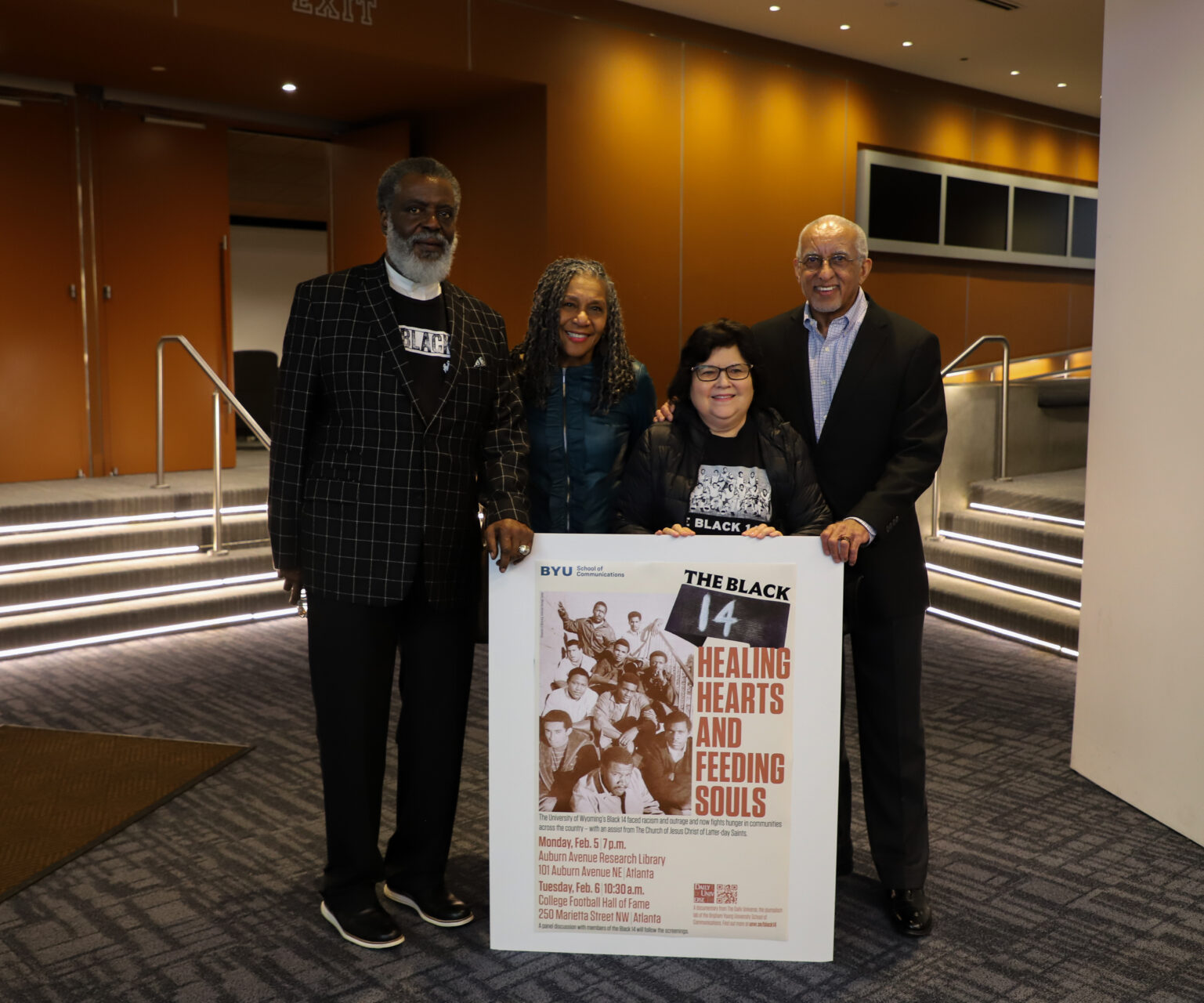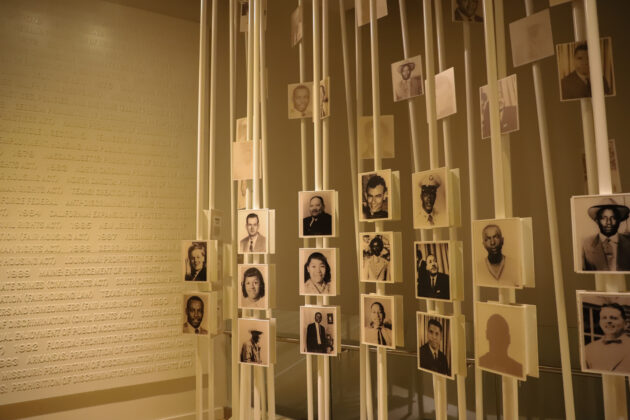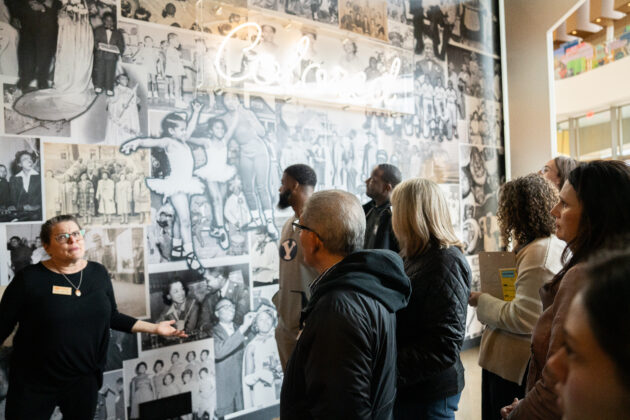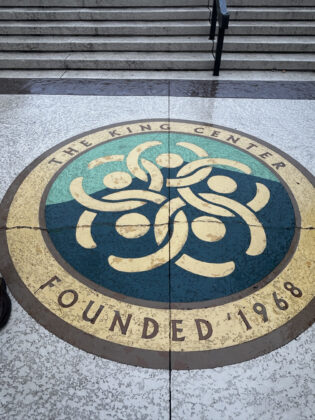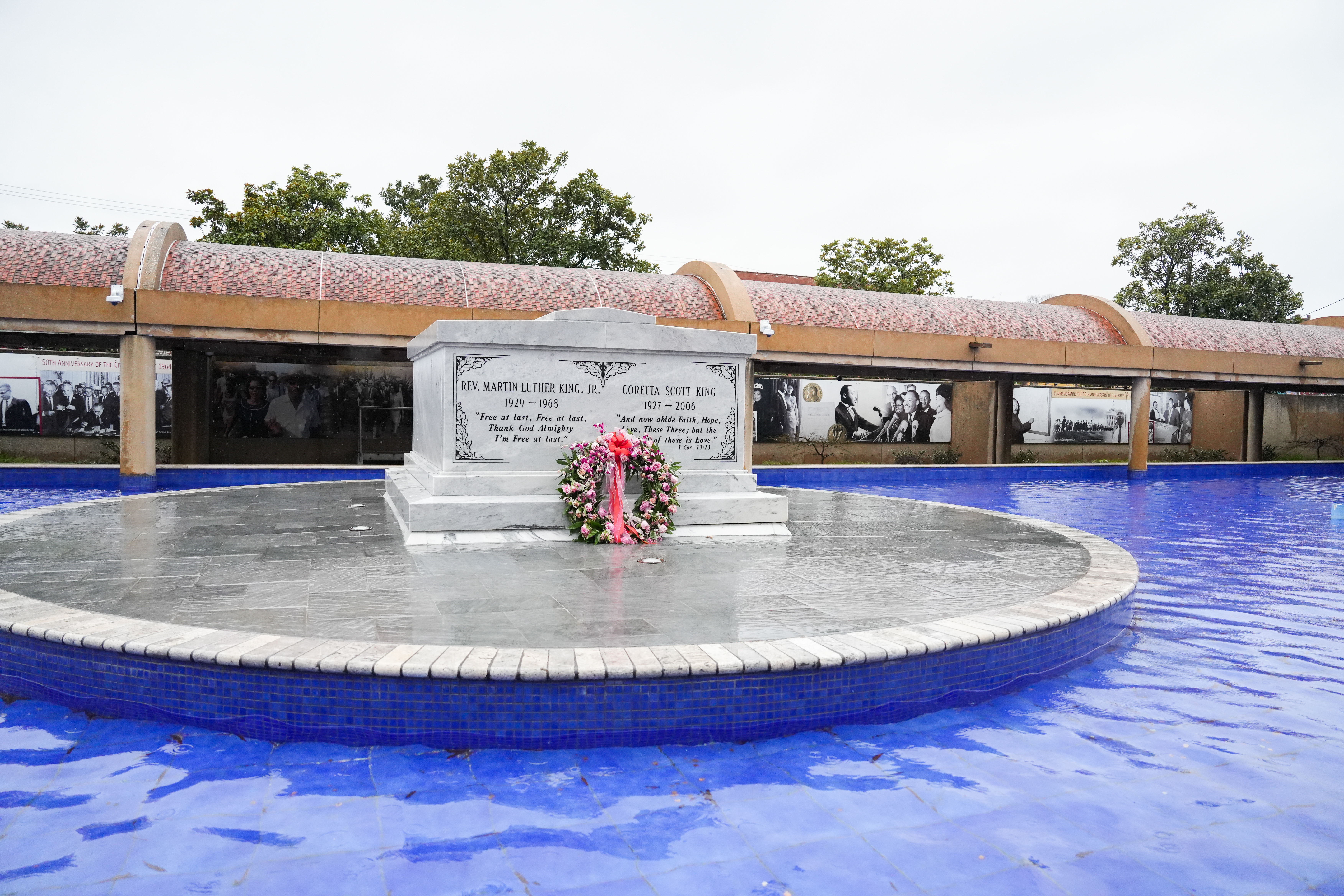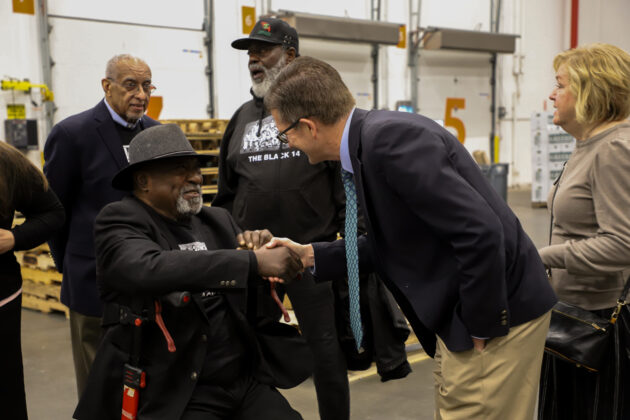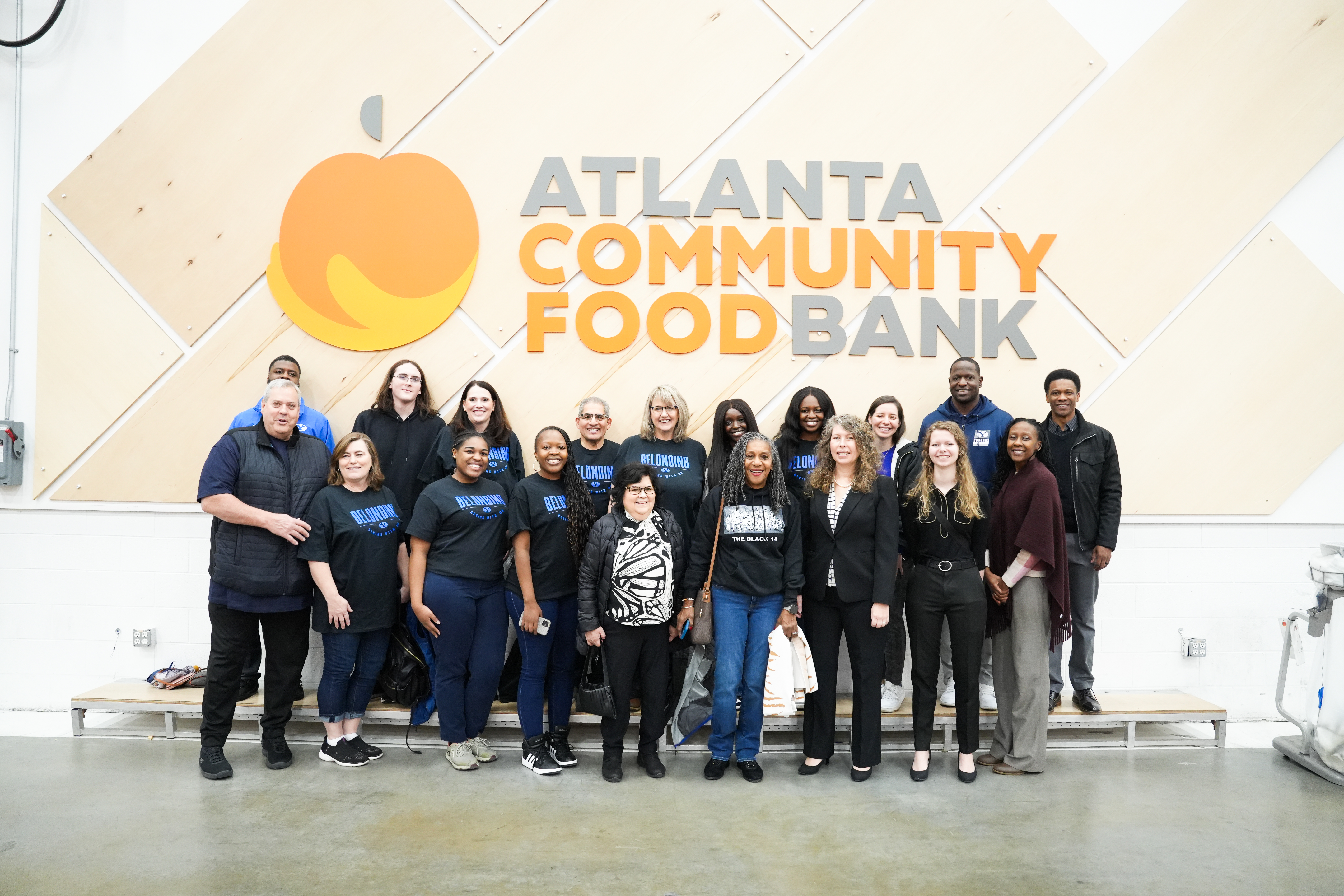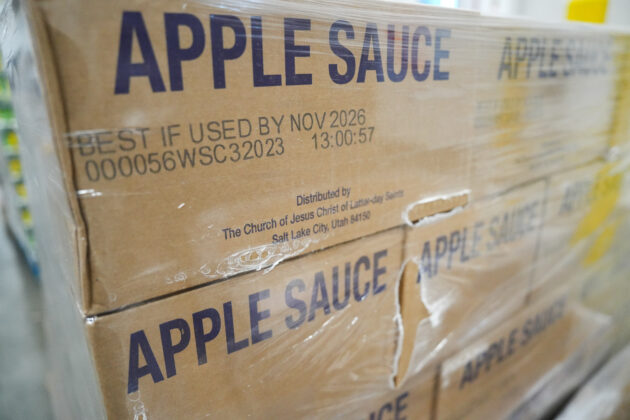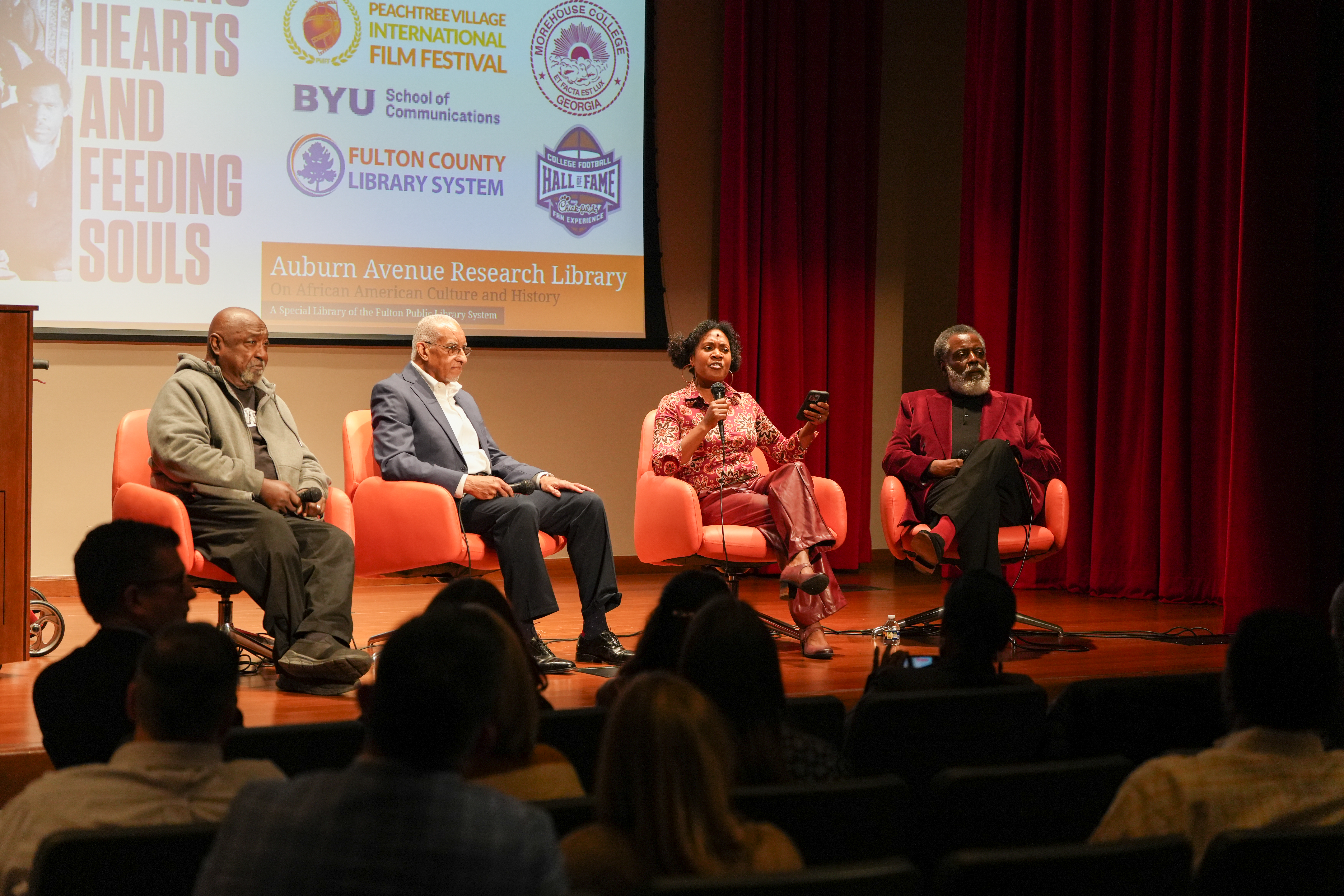
Black 14 members reunited from Feb. 2-6 for several screenings of “The Black 14: Healing Hearts and Feeding Souls,” a documentary made by BYU journalism students in 2022.
The events were hosted in Atlanta, where the College Football Hall of Fame exhibited a special collection of “The Black 14” in commemoration of Black History Month.
The documentary focuses on 14 Black football players on the University of Wyoming team who protested playing against BYU in 1969. The players wanted to wear black armbands to protest the then-active priesthood ban for Black members of the Church of Jesus Christ of Latter-day Saints, and they were removed from the team. 50 years later, the Black 14 reconciled with the Church and started collaborating on charity work.
“I opened up my heart, I was able to even ask the question, would the LDS help me in feeding my community? … That’s God’s work and hand,” Mel Hamilton, a member of the Black 14, said.
Since 2019, the Black 14 has worked with the Church to feed communities across the United States.
“We’re just looking to love God’s children,” Elder Andrew Gault, Area Seventy in the North America Southeast Area, said.
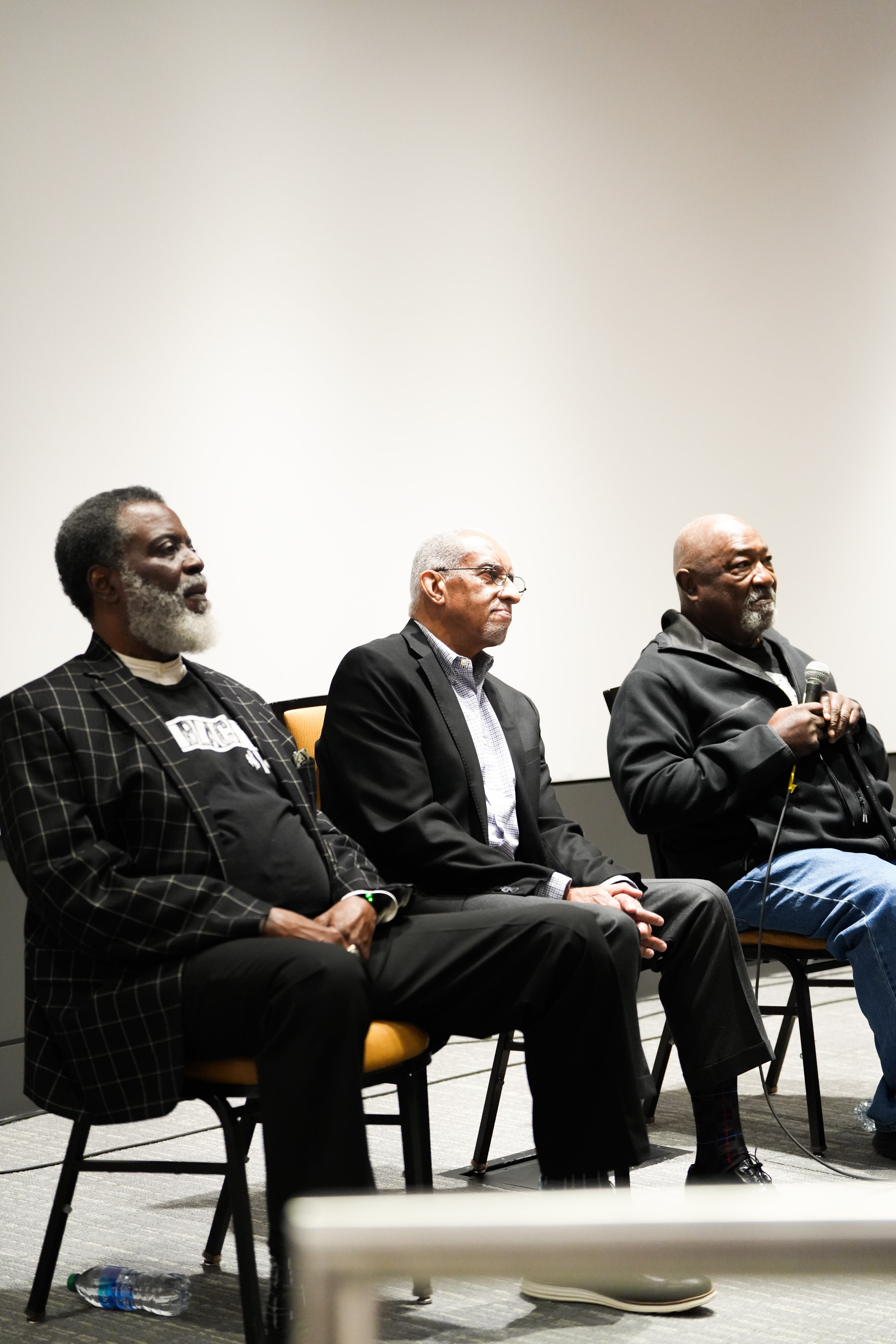
“I thought, ‘Why do I continue to be angry if I can’t change history?’ It is what it is. But we did not let that incident define our life,” John Griffin, another member of the Black 14, said.
Thinking about what they wanted their legacy to be, Hamilton said they decided they didn’t want to be remembered by the incident in 1969. Instead, they wanted to make a difference in the world and used the harmful event as a starting point to work on something beautiful.
During a panel discussion, members of the Black 14 reflected on their life stories.
“We made many mistakes and in time we corrected those mistakes,” Tony McGee, Black 14 member, said.
According to McGee, Hamilton started the initiative with the Church. After his son became a member of the Church, he started learning about the Church and its charity work. Hamilton reached out to the rest of the Black 14 to collaborate.
“At this time in this country, we need to see more things that collaborate between adversaries, and that’s what we have right now,” McGee said.
Students and faculty members from the BYU School of Communications, the BYU Office of Belonging and BYU Athletics also visited The King Center and the National Center of Civil and Human Rights in honor of Black History Month.
The civil rights museum had a display about African Americans during the Civil Rights Movement. Part of the display simulated how Black people were treated as they protested peacefully.
The students learned about Martin Luther King Jr. and others who fought for civil liberties.
“Our main goal is to create a more Zion-like community on campus … where everyone feels like they belong,” Julianne Grose, associate vice president of the Office of Belonging, said. “So that includes every relationship on campus.”
In the King Center, there were displays of Martin Luther King Jr. and his wife Coretta Scott King, Gandhi and Rosa Parks. The exhibit included pictures and personal belongings of the individuals.
To continue with the weekend’s events, the group visited the Atlanta Community Food Bank, where The Church of Jesus Christ of Latter-day Saints, in collaboration with the Black 14, made a food donation.
The first screening of the documentary took place in the Auburn Research Library. Following the screening, there was a panel with McGee, Hamilton and Griffin. They answered questions from the public and talked about their story, and how they overcame discrimination in their lives.
The second screening took place in the College Football Hall of Fame. In this post-screening panel, Hamilton, Griffin and McGee spoke about their trajectory and how they reconciled with the Church and with the University of Wyoming.
They spoke about how at 20 years old, recently expelled from college, they thought they wouldn’t have a successful life. 50 years later, they can now see how things worked out.
Those interested can watch the Black 14 documentary on Youtube and at the Daily Universe.
